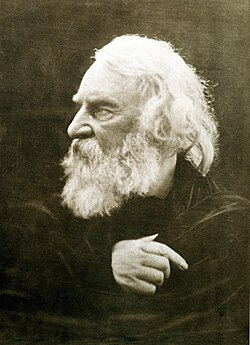Henry Wadsworth Longfellow Quote
There was a little girl And she had a little curl Right in the middle of her forehead When she was good she was very very good When she was bad she was horrid.
Henry Wadsworth Longfellow
There was a little girl And she had a little curl Right in the middle of her forehead When she was good she was very very good When she was bad she was horrid.
Tags:
childhood
Related Quotes
I believe the best service to the child is the service closest to the child, and children who are victims of neglect, abuse, or abandonment must not also be victims of bureaucracy. They deserve our de...
Kenny Guinn
Tags:
best, abandonment, abuse, bureaucracy, child abuse, childcare, childhood, foster care, life, neglect
Some of the most evil human beings in the world are psychiatrists. Not all psychiatrists. Some psychiatrists are selfless, caring people who really want to help. But the sad truth is that in today's s...
Rebecca McNutt
Tags:
asocial, child innocence, childhood, colleague, creepy, crime, disorder, drug company, drugs, ethics
About Henry Wadsworth Longfellow
Henry Wadsworth Longfellow (February 27, 1807 – March 24, 1882) was an American poet and educator. His original works include the poems "Paul Revere's Ride", The Song of Hiawatha, and Evangeline. He was the first American to completely translate Dante Alighieri's Divine Comedy and was one of the fireside poets from New England.
Longfellow was born in Portland, District of Maine, Massachusetts (now Portland, Maine). He graduated from Bowdoin College and became a professor there and, later, at Harvard College after studying in Europe. His first major poetry collections were Voices of the Night (1839) and Ballads and Other Poems (1841). He retired from teaching in 1854 to focus on his writing, and he lived the remainder of his life in the Revolutionary War headquarters of George Washington in Cambridge, Massachusetts.
His first wife, Mary Potter, died in 1835 after a miscarriage. His second wife, Frances Appleton, died in 1861 after sustaining burns when her dress caught fire. After her death, Longfellow had difficulty writing poetry for a time and focused on translating works from foreign languages. Longfellow died in 1882.
Longfellow wrote many lyric poems known for their musicality and often presenting stories of mythology and legend. He became the most popular American poet of his day and had success overseas. He has been criticized for imitating European styles and writing poetry that was too sentimental.
Longfellow was born in Portland, District of Maine, Massachusetts (now Portland, Maine). He graduated from Bowdoin College and became a professor there and, later, at Harvard College after studying in Europe. His first major poetry collections were Voices of the Night (1839) and Ballads and Other Poems (1841). He retired from teaching in 1854 to focus on his writing, and he lived the remainder of his life in the Revolutionary War headquarters of George Washington in Cambridge, Massachusetts.
His first wife, Mary Potter, died in 1835 after a miscarriage. His second wife, Frances Appleton, died in 1861 after sustaining burns when her dress caught fire. After her death, Longfellow had difficulty writing poetry for a time and focused on translating works from foreign languages. Longfellow died in 1882.
Longfellow wrote many lyric poems known for their musicality and often presenting stories of mythology and legend. He became the most popular American poet of his day and had success overseas. He has been criticized for imitating European styles and writing poetry that was too sentimental.
